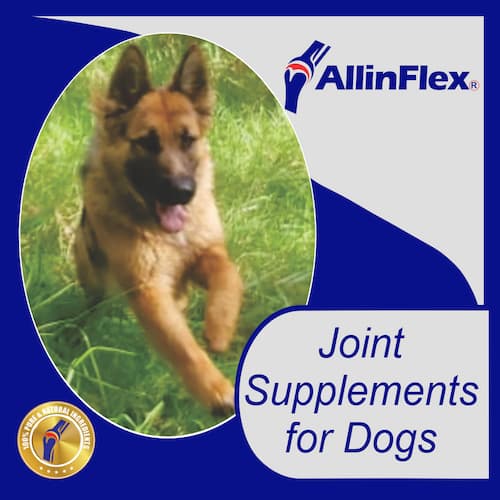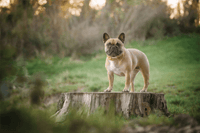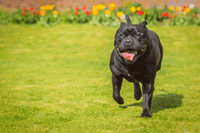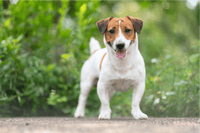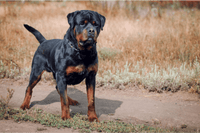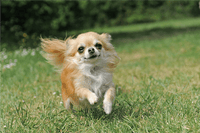Optimising Joint Health in Labrador Retrievers: Key Strategies and Supplements
Saskia OstermeierJoint health is a fundamental aspect of a Labrador Retriever's overall wellness, critical for dogs known for their vivacity and love of activity.
Whether they're fetching balls, swimming, or simply accompanying you on a daily walk, Labradors need well-maintained joints to move freely and without discomfort.
The Structure and Function of Joints in Labradors.
A joint is where two bones meet, facilitated by cartilage and synovial fluid which help in cushioning the bones and reducing friction during movement. As Labradors age or engage in vigorous activities, it's normal for the dog's cartilage to wear down and synovial fluid to decrease, which can lead to reduced flexibility and signs of discomfort such as a reluctance to jump or climb stairs.
Recognising Early Signs of Joint Discomfort in your Labrador.
Observing your Labrador for early signs of joint discomfort can be crucial in managing their joint health effectively. Signs like slight stiffness after getting up, or a noticeable decrease in enthusiasm for regular activities, can be early indicators. Addressing these signs proactively by consulting a veterinarian can help in maintaining your Labrador's mobility and quality of life.
Proactive Joint Health Management plan for Labradors.
Proactively managing your Labrador's joint health involves a holistic approach that includes a nutritious diet, regular and appropriate exercise, and potentially integrating joint supplements. Supplements that are rich in nutrients known to support joint health can be a valuable addition to their routine, especially for maintaining long-term joint function and comfort.
By understanding how joints work and the signs that might indicate potential discomfort, you can take effective steps to ensure your Labrador continues to live a happy, active life. This proactive approach is key to keeping your beloved pet agile and enthusiastic about life's adventures.
Feeding your Labrador a balanced diet rich in essential nutrients is the first step in supporting healthy joints.
Nutrients such as omega-3 fatty acids, which are found in fish oils and some plant oils, are known for their anti-inflammatory properties and can help maintain the health of joint cartilage.
Exercise for Healthy Dog Joints.
Regular, moderate exercise is another cornerstone of good joint health. It helps keep your Labrador fit, prevents excessive weight gain, and strengthens the muscles around the joints, thereby providing better support. Activities should be age-appropriate and consider any existing joint sensitivities.
The Role of Supplements in Dog's Joint Health.
While diet and exercise are foundational, supplements can also play a significant role in maintaining joint health. Ingredients like green-lipped mussel, MSM, Turmeric, Glucosamine, and Chondroitin are popular in joint supplements and can help support joint function and mobility. However, it's important to choose supplements that are specifically tailored for dogs.
Tailoring Care to Each Labrador.
Each Labrador is unique, and so are their health needs. Age, weight, activity level, and genetic factors all influence the type of care they require. A younger dog might benefit from preventive measures, while an older Labrador may need more intensive support.
As Labradors grow older, their exercise needs might change.
What was once a vigorous game of fetch might need to be adjusted to shorter, gentler walks. Keeping exercise routines adaptable helps prevent strain on their joints while still keeping them active and engaged.
Older Labradors might benefit from foods with lower calorie content but enriched with joint-supporting nutrients.
Joint health is vital for maintaining the quality of life for Labrador Retrievers.
By understanding the signs of joint discomfort, providing a balanced diet, ensuring regular exercise, and utilising appropriate supplements, you can help keep your Labrador active and healthy. Remember, proactive and personalised care is the best way to manage joint health throughout your dog's life.
